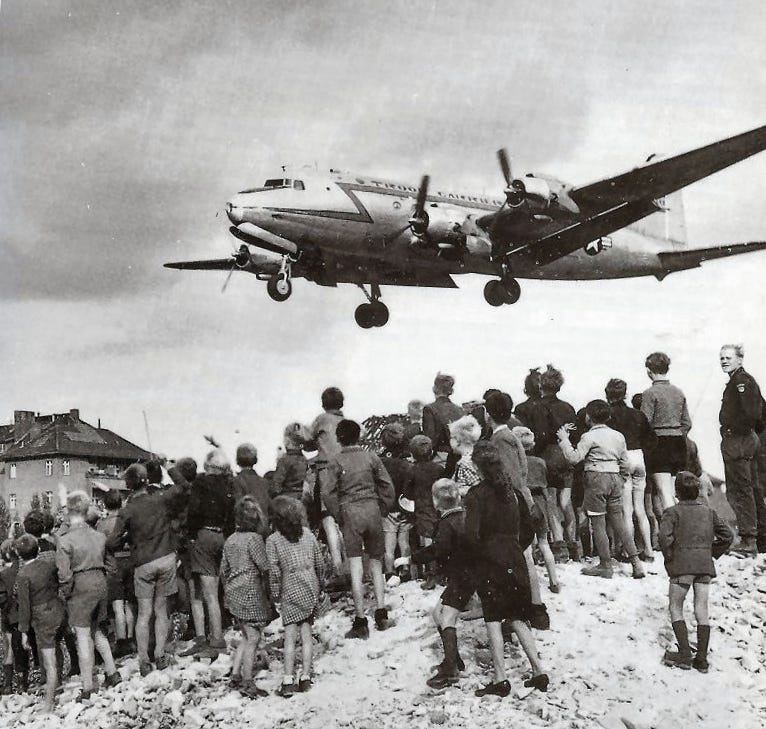The Berlin Airlift of 1948
Policy Brief
In any moment of crisis, when the situation is dire and interlaced with uncertainty, there are few qualities quite as desirable as those of courage and competence. This policy brief edition of Public Health Dad highlights an episode in history that came to be known as the “Berlin Airlift”, the Western Allies response to the Soviet’s “Berlin Blockade” in post-WW2 Europe.
Standing firm in their policy to resist Soviet aggression, the Western Allies (composed of France, Great Britain, and the United States) launched a massive 15-month humanitarian operation via airlift that required critical planning, coordination, and execution. The success or failure of this operation determined whether or not hundreds of thousands of German citizens would either starve or freeze to death.
The world of today makes it relatively difficult to imagine conditions of famine in a modern nation; a scenario where all of a sudden, there is not enough food to go around. But food security is still a problem for today, and an evaluation of the Berlin Airlift reveals the courage and competence that saved a city from famine. Perhaps in that revelation, there are worthwhile lessons of application for today.
The Events Leading to the Blockade
In 1948 the world stood at the precipice of a new manifestation of conflict — The Cold War. This new conflict was the inevitable result of two incompatible ideologies at odds with one another in their efforts to rebuild Europe in the fallout of WW2. Germany was the center-point of this conflict. Efforts to route out and destroy Hitler’s Nazi regime had left Germany decimated. As part of its post-war reconstruction, the reeling nation was divided into four areas of occupation, with each area under the jurisdiction of a single WW2 ally. But noting the importance of Germany’s capitol, there was an additional subdivision imposed upon Berlin itself, which lay 100 miles within Soviet-occupied Germany.


